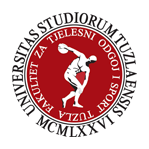EXPLORING STUDENT ATTITUDES TOWARD PHYSICAL EDUCATION AND IMPLICATIONS FOR POLICY
Keywords:
physical education and training, attitude, physical fitnessAbstract
Psychosocial variables can mediate physical activity and health-related fitness. The purpose of this study was to explore student attitudes toward physical education among students in Georgia (US) which recently implemented a policy requiring statewide fitness testing. A paper-pencil survey and fitness testing were administered to a convenience sample of middle school students. Student attitudes toward physical education were assessed by a Likert-type scale survey that measured two attitude constructs, Enjoyment and Perceived Usefulness. Health-related fitness was assessed by the FITNESSGRAM. Overall, students (N = 122) had positive attitudes toward physical education (M = 87.51 out of a possible 100 points, SD = 10.51).Separate stepwise regression analyses indicated the PACER test was the only significant predictor of Enjoyment in physical education, accounting for 16.4% of the variance (F (1, 120) = 20.32, p < .001). PACER and BMI were significant predictors of Perceived Usefulness of physical education, accounting for 15.2% of the variance (F(1, 119) = 10.69, p < .001). Student attitudes toward physical education can serve as a mediating factor for health-related fitness. Addressing the social and emotional health of students- as advocated in the Coordinated School Health Model- may also impact health-related fitness
Downloads
Downloads
Published
How to Cite
Issue
Section
License

This work is licensed under a Creative Commons Attribution-NonCommercial-NoDerivatives 4.0 International License.






